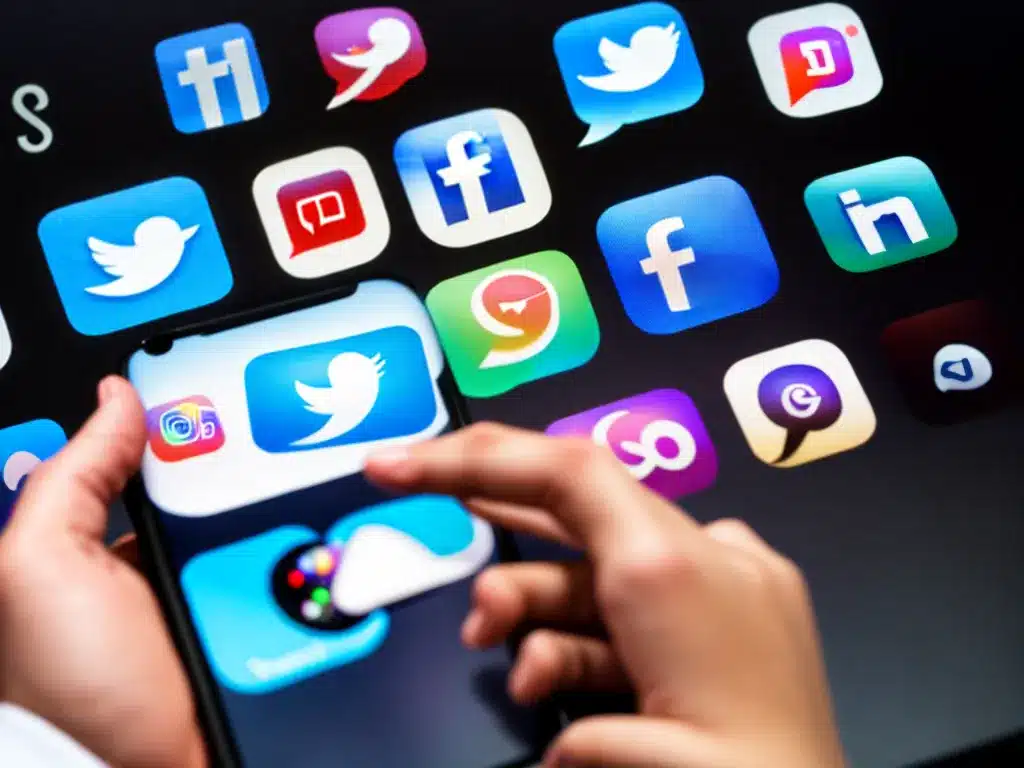
Introduction
Social media has become deeply ingrained in our lives. Platforms like Facebook, Instagram, and Twitter allow us to constantly connect with friends, family, colleagues, brands, celebrities, and public figures. However, the seamless integration of these platforms into everyday life has blurred the line between social media and reality.
This article will explore how social media shapes our perceptions, alters our behavior, and impacts our mental health. It will also examine the techniques social media platforms use to keep users engaged. By understanding the psychological effects of social media, we can have a healthier relationship with these powerful tools.
Social Media as a Filter for Reality
Social media curates the experiences and perspectives we’re exposed to. Our feeds become filtered versions of reality that impact our worldview.
-
The content we see is dictated by the accounts we follow and algorithms that learn our preferences. This creates a selective exposure effect – we only interact with voices that align with our existing beliefs.
-
Social platforms highlight the positive and curated lives of others. This causes social comparison, where we constantly measure our lives against the highlight reels of others.
-
The curated content leads to a confirmation bias – we think the curated content represents the full reality.
-
Seeing the same perspectives repeated in our feeds strengthens our belief that it reflects the consensus. This creates an echo chamber effect.
The result is that social media submerges us in filtered content designed to engage us. Our perception of reality becomes heavily influenced by the tailored content in our feeds.
Social Media Actions Rarely Match Reality
On social media, we portray idealized versions of ourselves through curated posts, photos, and captions. This causes a disconnect between our real and online personalities.
-
Many people post content to impress others or make their lives seem perfect rather than express their true self.
-
Images are carefully edited to show only the best angles. Captions use embellished or ambiguous language.
-
Milestones and achievements are announced on social media to gain validation through likes and comments.
This desire for external validation often supersedes authentic self-expression. The need to constantly post shareable content can prevent us from being present. It also compromises our privacy and mental health.
Platforms like Instagram and Facebook distort reality by allowing us to manipulate how others perceive our life.
Social Media’s Impact on Mental Health
Numerous studies reveal that excessive social media usage negatively affects mental health:
-
The constant pressure to portray perfect lives leads to anxiety and depression when the reality fails to match.
-
Exposure to doctored images and comparison with others results in low self-esteem and negative body image, especially among teens.
-
The fear of missing out (FOMO) from seeing experiences of others causes stress and dissatisfaction with life.
-
Cyberbullying and online harassment have been linked to trauma, self-harming behavior, and suicidal ideation.
While social media keeps us connected, it fractures our self-identity and worsens mental health issues like depression and anxiety in some individuals.
How Social Media Hijacks Our Attention
Social media companies use various techniques to maximize user engagement:
- Intermittent variable rewards in the form of notifications and personalized content hook our brains like slot machines.
- Fear of missing out makes us obsessively check apps to stay updated.
- Feedback loops through comments, likes, and reactions provide instant gratification for posting content.
These reward-based mechanics exploit our psychology to gain habitual usage. The more time users spend on platforms, the more ads they see, which converts to higher revenue.
Our brains release dopamine when we receive notifications, go viral, and gain followers. Over time, the chemical and neurological reward response gets rewired to constantly crave social media usage. This distraction impairs productivity, focus, and mental well-being.
Achieving a Healthy Balance
It’s impossible to entirely abandon social media in the digital era. However, we can strike a balance by:
- Recognizing that the portrayals of others are carefully curated highlights rather than reality.
- Limiting usage through screen time settings and social media fasts.
- Asking ourselves if each post serves a specific purpose or just external validation.
- Maintaining face-to-face interactions to nurture real relationships.
- Seeking professional help for social media-induced anxiety and depression.
The line between social media and reality is undoubtedly blurring. But by understanding its psychological impacts, we can foster a mindful relationship with social platforms. Moderation and honest self-expression are key to leveraging its benefits while preserving mental health.
Conclusion
Social media’s rise has profoundly shaped human interaction. While connecting us to wider circles, its curated feeds often distort reality. The pressure to match unattainable standards impacts mental health and hijacks attention through addiction-based mechanics. Greater self-awareness and balanced usage can help us avoid its traps. As social media becomes inseparable from life, our ability to filter reality from fiction will grow ever more vital.












